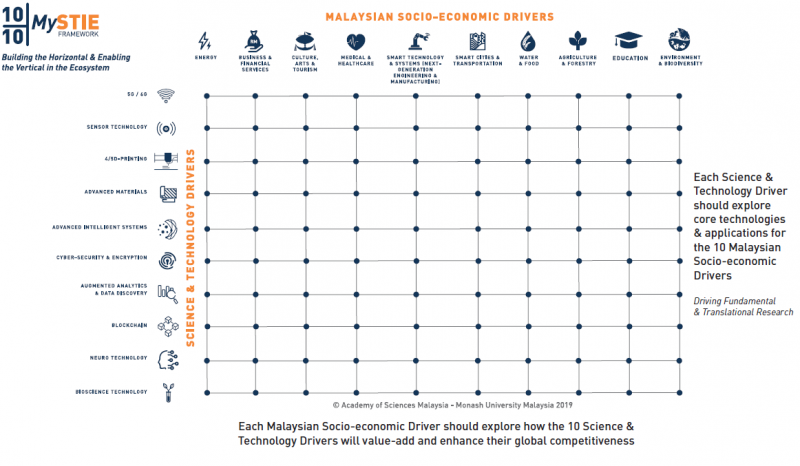
This site
is mobile
responsive
Malaysia’s digital journey started as early as 1996 which led to the introduction of the Multimedia Super Corridor (MSC). This move was visionary and advanced for its time. It was this early adoption that equipped Malaysia to embark on the current ambitious agenda of embracing Industry 4.0 as it requires a digital and industrial revolution to transform the manufacturing and services sectors in multiple ways.
Over the years, the industrial sector has made good progress although the speed of adoption could be faster. The pandemic accelerated the need for an overhaul of business operations and increased digitalisation. Establishments, both in the public and private sectors, no longer have the luxury of time in joining the digital revolution.
They need to hop onto the bandwagon to sustain and close the gap of the digital divide, or risk being left behind. The pandemic, with its social distancing measures, has thrust the world into a ‘temporary reclusion’ – causing the world to come to a halt. It is only thanks to creative digital solutions and technologies that societies and businesses are able to interact and continue operations remotely.
This reality check was not only for businesses that were hesitant in embracing a digital transformation, but it was also a wake-up call to governments all over that were unfortunately ill-prepared to address the immediate issues that arose from the pandemic. For Malaysia, the Government jumped into action and recognised the need for a structured plan in response to the current digital needs of the country.
Malaysia Digital Economy Blueprint (2021 – 2030)
On 19 February 2021, the Government launched MyDIGITAL or the Malaysia Digital Economy Blueprint (2021 – 2030). The ultimate aim is to transform Malaysia into a digitally-driven, high-income nation and a regional leader in digital economy. MyDIGITAL sets the tone for the next frontier of Malaysia’s digital endeavours. The formation of the Blueprint was led by the Economic Planning Unit (EPU) through a comprehensive study with active involvement from various Ministries and agencies including MIDA, the private sector as well as civil society organisations.
The implementation of MyDIGITAL will see Malaysians enjoy improved standards of living and wellbeing; businesses enjoy greater opportunities to expand their operation and market by optimising resources; and the Government to be able to provide more efficient and effective services. Through this Blueprint, Malaysia expects to generate RM70 billion domestic and foreign investment in the span of 10 years.
The Government has also made a proactive decision to intervene and accelerate the roll-out of 5G network. This makes Malaysia among the early adopters of 5G internet and cloud services in South East Asia. Goliaths of telcos such as Ericsson, Huawei, ZTE, Cisco, NEC, Nokia, Samsung and FiberHome will be participating in the 5G infrastructure tender to provide views on building a 5G national network and end-to-end digital solutions.

Promoting Investment into Digital Tech Sector
As the national principal investment promotion and development agency, MIDA will continue to elevate digital tech development in a broad range of industries. MIDA has been aggressively promoting the digital tech sector such as data centres, cybersecurity, artificial intelligence (AI), creative and digital content like gaming and animation, as well as system integrators and solution providers to fortify Malaysia as the tech launchpad in the region. Among captains of industries that have placed their confidence in Malaysia through their investments are Music Tribe and Sony Interactive Entertainment Worldwide Studios (SIE Worldwide Studios).
Music Tribe, a multi-national leader for professional audio products and musical instruments with global operations, chose Malaysia in 2019 as its headquarters to spearhead its Global Digital Transformation strategy. This operation will house a new digital leadership team responsible for implementing cutting-edge digital platforms to boost the experience of Music Tribe’s customers through data analytics, Augmented Reality (AR) and Virtual Reality (VR). As for SIE Worldwide Studios, it was Malaysia’s vibrant ecosystem that convinced the group to set up its first studio outside its US base in the country. PlayStation Studios Malaysia, as part of the Sony family of global studios, will develop worldwide exclusive titles for the PlayStation realm. This ‘pings’ continued growth of the ICT industry – a creative and vibrant industry that runs the gamut of digital content and cybersecurity in the country.
The digital agenda in Malaysia is further strengthened by technology providers and system integrators (SI). Malaysian SI plugs local industries into digitalisation, paving the possibility for local companies to implement Industry 4.0 elements in phases without entirely replacing their legacy machinery. In addition, through MIDA’s facilitation, the development of the remote sensing industry in Malaysia has reached greater heights with the advent of reputable local service providers in light detection and ranging (LIDAR) surveying, high tech mapping and imagery activities.
Before 2020, the e-commerce sector has been growing in Malaysia with an overall GDP contribution expanding from RM89 billion to RM127 billion between 2015 and 2019. The pandemic and lockdowns imposed by the Digital Investment Office (DIO) Government have certainly altered spending habits and transitioned consumers to rely heavily on online purchases. This shift has propelled Malaysia to fine-tune the readily efficient and capable logistics service providers in operating efulfilment facilities. Major ecommerce platforms such as Zalora, Lazada and Shoppee have created huge opportunities for logistics players to provide better e-fulfilment and distribution infrastructure to support their operations.
Digital Investment Office (DIO)
On 23 April 2021, the National Council of Digital Economy and Fourth Industrial Revolution (MED4IR) chaired by Prime Minister YAB Tan Sri Muhyiddin Yassin endorsed the establishment of the Digital Investment Office (DIO). This office is entrusted to charge towards facilitating digital investments in Malaysia and is a fully digital collaborative platform between MIDA and the Malaysia Digital Economy Corporation (MDEC) to coordinate and facilitate all digital investments.

This collaborative effort will cater to the rapidly growing digital industries’ needs with a view to anchor global technology leaders, build local champions and nurture futureready talents in Malaysia. The Government anticipates the DIO to play a vital role in positioning Malaysia as the preferred Digital Hub and firmly establish the country as the Heart of Digital ASEAN in the region.
While investing in digitalisation offers a plethora of benefits, the adoption rate among Malaysian SMEs is relatively low due to barriers such as technology costs and the absence of digital strategies. To close the digital divide between Malaysian SMEs and MNCs in Malaysia, MIDA is facilitating industry players in their digital transformation journey. SMEs are urged to leverage on the available facilities and seize the opportunity to diversify into higher value-added activities and sharpen their competitive edge, particularly in the digital arena.
Realising that technology readiness among Malaysian SMEs and the society at large stems from the culture of science, technology and innovation, Akademi Sains Malaysia developed the 10-10 Science, Technology, Innovation and Economy (MySTIE) Framework. MySTIE has outlined 10 science and technology drivers that will leapfrog 10 socioeconomic drivers with 30 national STIE niche areas. It is imperative that Malaysia’s workforce benefit from the new opportunities of the digital economy. Hence, a concerted effort from all parties, including leaders from the public and private sectors, is essential in building a future-proof workforce and maintain competitiveness in the digital age.

Source: MIDA e-Newsletter April 2021